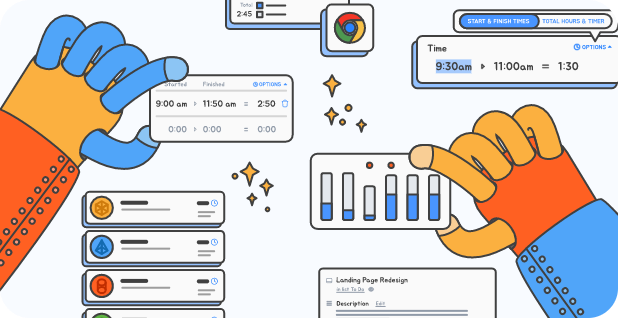Understanding The Attention Economy
Have You Been Paying Attention?
In our information rich world, where access to content is instantaneous, the true currency is not the material we consume but the attention required to consume it. As US economist Herbert A. Simon famously said, “...a wealth of information creates a poverty of attention” - and this is very much the reality of the society we live in today.
The concept of an ‘attention economy’ seeks to understand this changing value of attention, and contextualise an era where human focus has become an ever-rare commodity. This shift has led to the reevaluation of how value is created, exchanged, and capitalised upon in various sectors, especially in digital and online contexts.

Treating human attention as a valuable resource is not new. In prior human history, when we lived in a more material based economy, media such as newspapers, radio, and television competed for our attention in the form of traditional advertising. However, with the emergence of social media platforms, search engines, and mobile technology, the battle for our attention has intensified, leading to innovative and often intrusive strategies to capture and monetize user engagement.
Understanding how the attention economy works is crucial for navigating the complexities of modern life, from making informed choices as consumers to recognizing the impact of technology on our personal well-being. Below, we dissect attention as an economic model, exploring its mechanisms, impacts, and the ethical considerations it raises.
Mechanisms of the attention-based economy
The mechanisms by which technology companies capture audience attention are sophisticated and multifaceted. Here, we explore these mechanisms, focusing on digital platforms and social media, advertising models, and the utilisation of data analytics for personalisation.
Digital platforms and social media have emerged as the primary arenas where the battle for attention is most intense. These platforms are designed to maximise user engagement, employing algorithms that curate and present content tailored to individual preferences. The infinite scroll, push notifications, and visually rich, attention grabbing content are just a few examples of how these platforms ensure that once users are online, they remain engaged for as long as possible.
Advertising models within the attention economy have also evolved. Ever noticed that you’ve started getting ads for a product after discussing that very thing with a friend? While traditional advertising seeks to capture attention through sheer frequency and prominence, today's digital advertising strategies are far more nuanced, leveraging user data to deliver targeted ads with unprecedented precision. This shift not only increases the effectiveness of ads but also enhances their value to advertisers by ensuring that they are seen by individuals most likely to be interested in the product or service offered.
The role of data analytics and personalization is perhaps the most critical component of the attention economy's mechanisms. By analysing vast amounts of data, platforms can understand user behaviour, preferences, and patterns to an astonishing degree of accuracy. This information is then used to personalise the user experience, from the content and ads displayed to the timing of notifications. This level of personalisation ensures that users are more likely to engage with the content they see, thereby further cementing their attention to the platform.
These mechanisms, while effective in capturing and sustaining attention, also raise significant ethical and societal questions. The trade-off between personalised content and privacy, the impact of targeted advertising on consumer behaviour, and the broader effects of constant engagement on mental health and societal discourse are all critical considerations in understanding the attention economy.
Impacts of the attention economy
The attention economy, while a driving force behind innovation and connectivity in the digital age, also wields significant influence on various facets of society and individual lives. Its impacts are wide-ranging, affecting everything from our mental health to the fabric of our culture and the dynamics of our economies.
Psychological and mental health impacts
On an individual level, the constant demand for our attention can have profound psychological effects. The design of social media platforms, with their endless feeds and instant gratification through likes and shares, taps into our basic human needs for approval and belonging. However, this can also lead to increased feelings of anxiety, depression, and loneliness as users compare their lives to the idealised versions seen online. Moreover, the addictive nature of these platforms can result in diminished attention spans, mental resources and disrupted sleep patterns, further affecting mental well-being.
Cultural shifts
Outside of our personal lives, the attention economy has also been the catalyst for significant cultural shifts. It has changed how information is consumed and valued, with sensational content often taking precedence over nuanced, complex or even factually accurate information. This shift towards fast-consumable, emotionally charged content can undermine the depth and breadth of public discourse, leading to polarisation and a fragmented society. Additionally, the global reach of digital platforms means that cultural products can achieve unprecedented spread, influencing local cultures and creating new forms of digital culture.
Economic and business impacts
Economically, the attention economy has led to the emergence of new business models that prioritise user engagement over product sales. In this landscape, data is a key asset, driving decisions in content creation, marketing, and product development. The ability to capture and retain attention not only dictates the success of digital platforms but also influences traditional industries as they adapt to the digital environment. This shift has also resulted in the concentration of market power and advertising revenue in the hands of a few major tech companies, raising concerns about competition and innovation.
Societal concerns
On a societal level, the dynamics of the attention economy raise several concerns. The prioritisation of engagement over accuracy can contribute to the spread of misinformation, with significant implications for public health, safety, and democracy. Furthermore, the economic incentives to capture attention can lead to the exploitation of user data and privacy breaches, challenging the ethical boundaries of digital business practices.
Future directions
As the digital landscape continues to evolve, so too will the attention economy. This evolution presents opportunities for innovation, regulation, and individual empowerment. Looking ahead, several key areas will likely shape the future of how attention is captured, monetized, and managed.
Emerging trends
Technological advancements such as artificial intelligence (AI), augmented reality (AR), and virtual reality (VR) are set to redefine the boundaries of the attention economy. AI can enhance personalization, making content even more engaging and hard to ignore. Meanwhile, AR and VR promise to immerse users in digital experiences that are even more captivating than current screen-based media. These technologies have the potential to create new dimensions of interaction, offering unprecedented opportunities for engagement but also raising significant ethical and privacy concerns.
Potential solutions
Addressing the challenges of the attention economy will require concerted efforts across multiple fronts. Regulation plays a crucial role, with the need for policies that protect user privacy, ensure data security, and promote competition among digital platforms. For instance, stricter data protection laws and regulations on digital advertising could act as a limiting factor for some of the impacts on privacy and mental health.
Education is another critical component. Digital literacy programs can empower users to navigate the digital world more consciously, helping them understand the mechanisms behind the content they consume and the implications of their online behaviours
Finally, technological innovation offers solutions from within. Developing humane technology that prioritises user well-being over engagement metrics could help realign the incentives of the attention economy. Features that encourage digital well-being, such as screen time limits or content diversity prompts, can help mitigate some of the adverse effects associated with excessive digital consumption.
The role of society
The future of the attention economy is not just in the hands of policymakers and tech companies; individuals also play a crucial role. By becoming more mindful of our digital consumption patterns and advocating for ethical practices and using attention efficiently, users can influence how digital platforms operate. Collective action, whether through consumer choices or advocacy, has the power to drive change in the attention economy, pushing for a digital ecosystem that sees our cognitive resources not just as a commodity but as a fundamental aspect of human experience.















